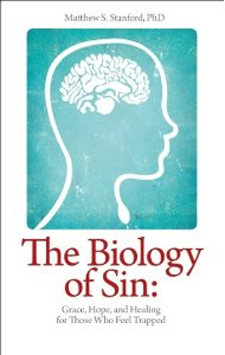Neuroscience prof’s research investigates ‘The Biology of Sin’
 There’s a lot of debate in the world today over whether acts like adultery, rage and addiction are choices we make (sins) or simply a result of our biological disposition. Dr. Matthew Stanford, professor of psychology and neuroscience at Baylor, argues that the answer may not be one or the other, but both.
There’s a lot of debate in the world today over whether acts like adultery, rage and addiction are choices we make (sins) or simply a result of our biological disposition. Dr. Matthew Stanford, professor of psychology and neuroscience at Baylor, argues that the answer may not be one or the other, but both.
In a new book, The Biology of Sin, Stanford — a three-degree Baylor alum (BS ’88, MA ’90, PhD ’92) — approaches the discussion as both a Christian and a neuroscientist, asking the same question of a variety of issues: “What does science say about this behavior, and what does the Bible say about this behavior?”
“I hope people recognize sin as a spiritual phenomenon that also has a physical manifestation,” says Stanford, pointing as an example to problems in two areas of the brain are thought to produce a predisposition toward rage and impulsive aggressive behavior.
Stanford is clear to point out that biology is not destiny and “broken biology” should never be used as an excuse for sinful behavior. “Sin is a ruthless beast: crouching at the door, waiting to consume us all,” he writes. “Sitting across the table from impulsive and aggressive patients is more like looking into a mirror than gazing at a monster. I see my own imperfections, the stain of sin, and I am grateful for God’s abundant grace.”
While other universities might approach this kind of research from only one angle, Stanford’s efforts here at Baylor demonstrate how rigorous academic study can incorporate the realities of science and the realities of God.
Sic ’em, Dr. Stanford!

